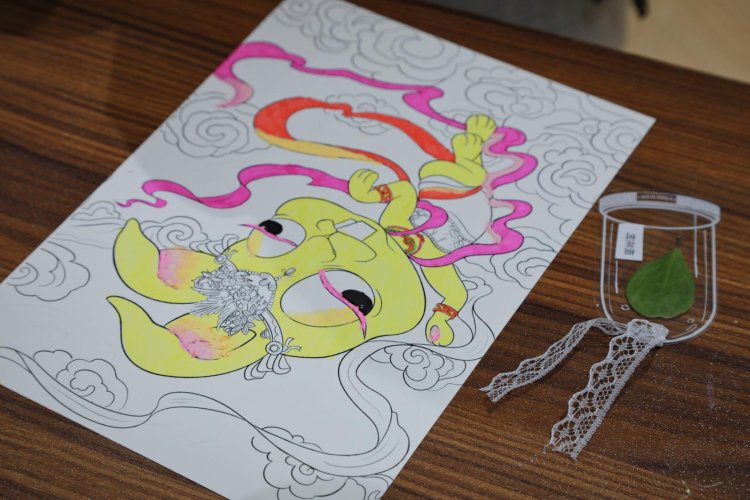Green Film Fest Kicks Off, But Where Are the Local Filmmakers?
Peter Sallade is worried Beijing’s green film scene will wilt before it even has the chance to bloom.
Sallade is a coordinator for the Greening the Beige (GtB) film festival, which is backed by the local artsy ecology NGO of the same name. The event features several indie films covering a spectrum of environmental turmoil.
Those entries include Renzo Zanelli’s “El Perro Del Hortelano,” which is the first movie ever written and produced by indigenous Peruvians. It focuses on natives protesting their ousting from the Amazon jungle by ravenous oil companies.
The GtB roster also features “Kathmandu Troubled Water,” a Nepalese documentary detailing government mismanagement that leaves the capital's main river stagnant and its citizens parched.
In fact, the GtB movies cover green issues in every corner of the globe- except for the very locale where the event is housed. Sallade says none of the films touch on China’s pollution problems, and not a single Beijing director submitted a film.
Liu Yusi, another coordinator for the GtB festival, says the events’ international films will hopefully seed Beijing’s documentary scene with environmentalist inspiration.
“With these films from all over the world, we hope to encourage Chinese filmmakers to focus on the environment,” Liu says. “I’m not for tying yourself to a tree or anything, but I’d like to see more Beijing artists be more clear and direct about it.”
Zanelli says members of the Beijing audience, both domestic and expat, will be equally informed by the fest. He then elaborated on El Perro Del Hortelano’s universal message.
“It is important to give indigenous Peruvians a voice, because they hold special knowledge about how to live on this planet in a sustainable manner… in harmony with nature.”
But that balance has been usurped by oil companies forcing natives out of the resource rich jungle- literally pushing them to cease their peaceful traditions.
“Peru has a recent history of left wing armed conflicts,” Zanelli says of the bloody revolts that inspired his film’s tensest moments. “So the first problem we had was bringing the fake guns from the US into Peru. Our associate producer, Jacquelyn, charmed the security officers and made it through. And while we were shooting the scene, we had to sneak around with the guns so that no one would think we were making a film about an indigenous uprising.”
Liu says such social commentary should be embraced by Beijing’s documentarians.
“Many Chinese indie filmmakers do a good job documenting their own problems in their lives,” Liu says of the introspection that has won them accolades.”But green issues are too urgent for that.“
That sentiment was echoed by Zanelli.
“I don't think we have time for metaphors to sink in… (with) what our planet is facing,” he says, before adding that Beijing’s directors have more than enough talent to plug the gap in their ecological film scene. “Chinese directors are brilliant. ‘The Red Detachment of Women’ was a huge influence on me. Now Chinese filmmakers should be inspired by (the GtB) festival’s works, that even with an extremely low budget you can create a successful green film.”
However, there are many more unique hurdles for China’s green documentaries. Bruce, a Chinese documentary filmmaker for CCTV 10 who declined to give his surname, says the genre is tangled in endless nuances.
“Making movies about pollution in Beijing or Shanghai is okay because they’re big cities, famous all over the world,” he says, before adding that rural Chinese citizens have a different viewpoint. “[China’s] small towns really want to develop business, so they can’t afford to lose face … the people don’t want to lose business.”
But Sallade says the international GtB films can help open the minds of everyone in China’s borders- from the urban to the rural, from locals to expats, from filmmakers to audiences.
“It’s about educating people- what we can all do to clean up after ourselves, to make companies clean up after themselves. It’s about showing (audiences) it’s not just a losing battle, that everyone can pitch in.”
For those curious about environmental issues all over the world, Greening the Beige gives us a thought-provoking look - at water supply issues in Kathmandu, destructive industry in Peru, evasive moments of natural predation in Australia and more - as we wait for local filmmakers to step up to the plate.
The GtB’5 Green Film Fest will be held Nov 3 and Nov 10 at The Veggie Table (both starting at 8:30pm), and Nov 5 and Nov 13 at the Hot Cat Club (both starting at 2:30pm). Admission is free but seating is limited, so arrive early. For more information call: The Veggie Table (6446 2073) or the Hot Cat Club at (6400 7868), or visit GtB's website.
Photos: Courtesy of the organizers


